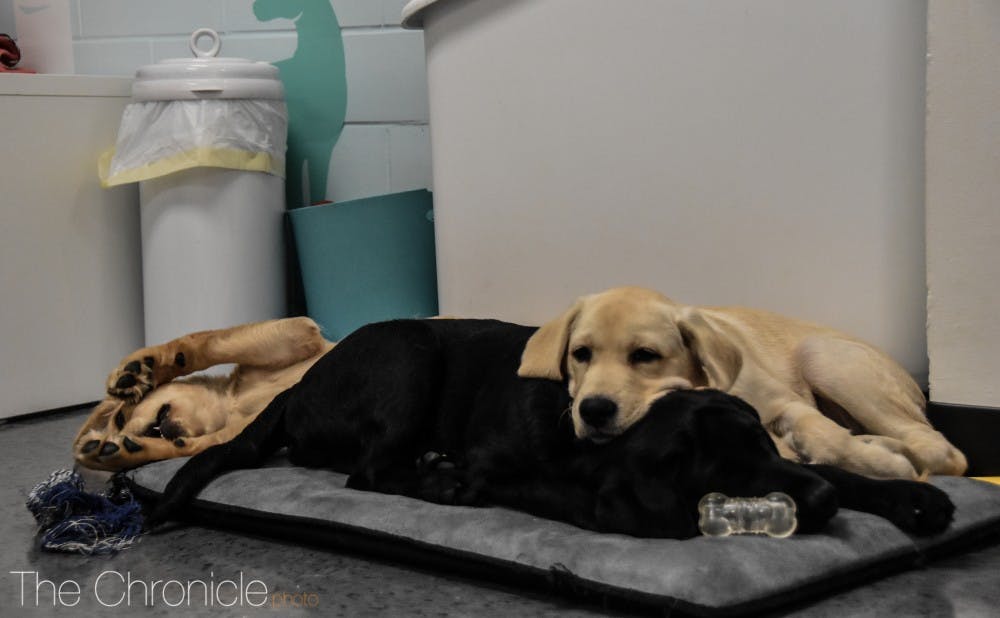Brian Hare, professor of evolutionary anthropology and founder and co-director of the Duke Canine Cognition Center, launched this spring a program called “puppy kindergarten,” a research facility on campus and also a full-time residence for puppies.

Through this program, researchers track the early development of the puppies and examine how their psychology changes as they grow into adolescence.
Puppy kindergarten also trains puppies to be service dogs in coordination with Canine Companions for Independence, an organization that provides trained assistance dogs to people with disabilities.
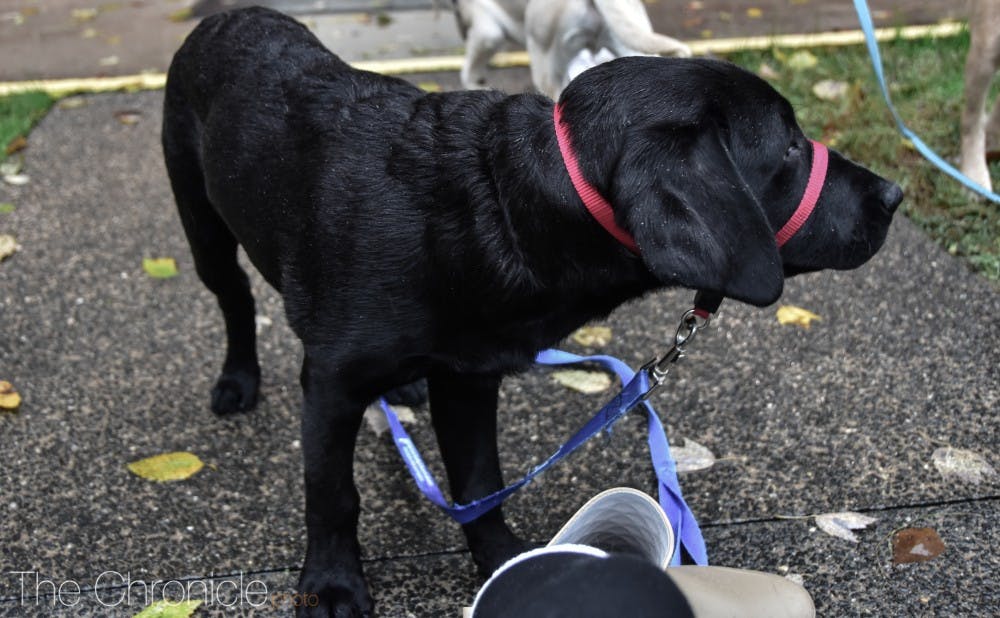
Dogs are trained for 14 to 18 months to assist people with physical or mental disabilities. Training has a 50 percent pass rate, and if the dogs fail, they are listed for adoption.
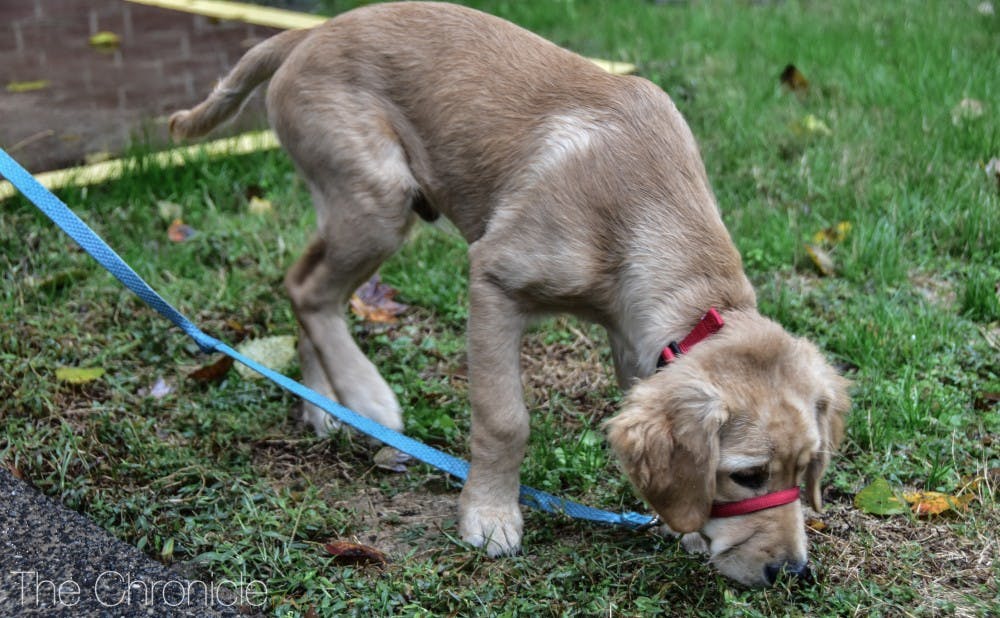
A golden retriever named Kyler and a black lab named Ernie, both about 12 weeks old, joined the kindergarten this spring and participated in the Spring Breakthrough course that Hare led. Students in the course explored the implications of the domestication of dogs and other species on their evolution.
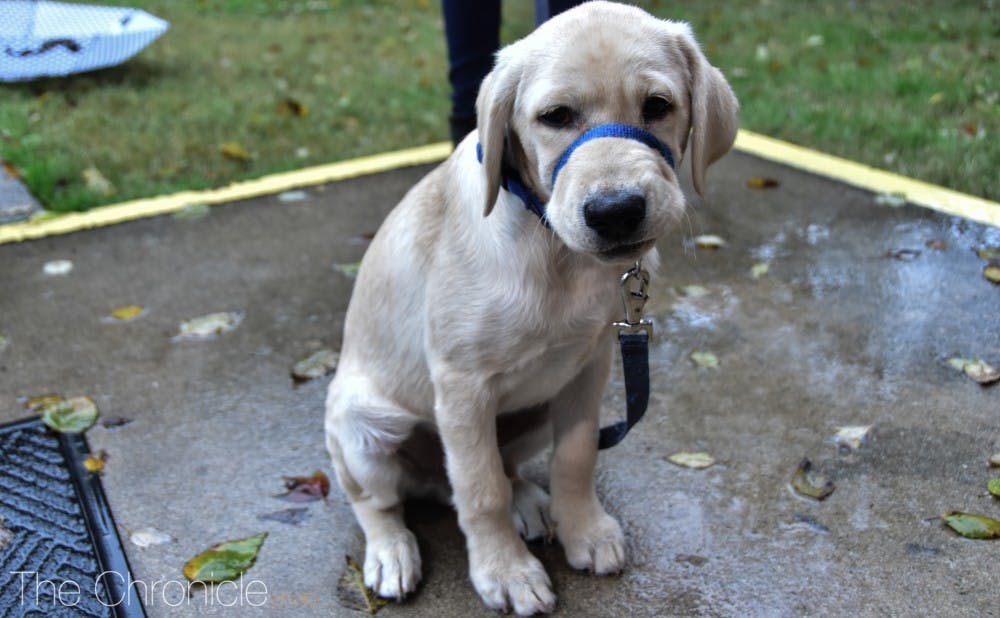
During that time, 58 volunteers each came in for two-hour shifts from 6 a.m. to 10 p.m. to care for the puppies and train them.
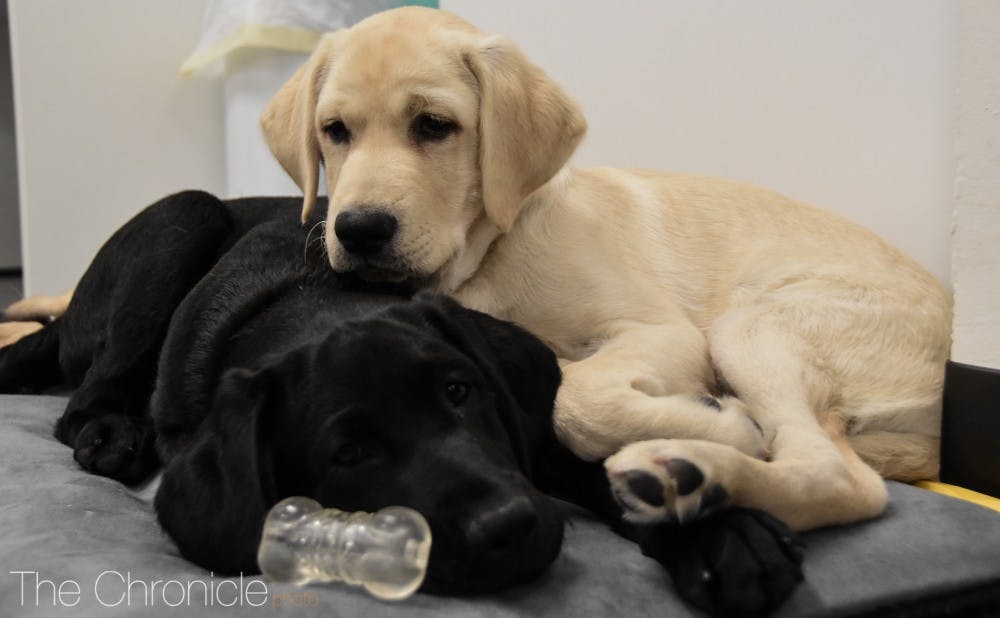
“The big question for us is: can we come up with ways to ways to predict the puppies that are going to be most likely to make it through the CCI training and graduate?” Hare said to the Orlando Sentinel. “Because if we can do that, we can increase their supply and help more people.”
Get The Chronicle straight to your inbox
Sign up for our weekly newsletter. Cancel at any time.

